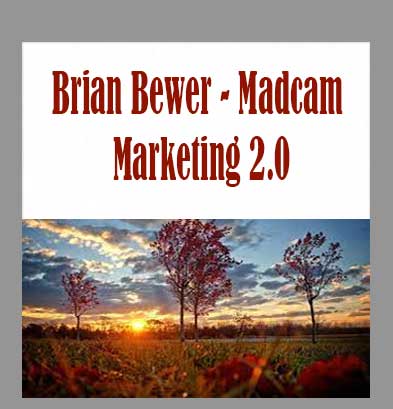Diagnosing Depressive, Bipolar, and Alcohol Use Disorders with Jason Buckles & Victor Yalom
Description
Diagnosing Depressive, Bipolar, and Alcohol Use Disorders with Jason Buckles & Victor Yalom download , Diagnosing Depressive, Bipolar, and Alcohol Use Disorders with Jason Buckles & Victor Yalom review , Diagnosing Depressive, Bipolar, and Alcohol Use Disorders with Jason Buckles & Victor Yalom free
Diagnosing Depressive, Bipolar, and Alcohol Use Disorders with Jason Buckles & Victor Yalom
Volume 3 of our DSM-5 and Psychodiagnostic Interviewing series covers diagnoses that can sometimes overlap and be hard to distinguish from one another: Depressive and persistent depressive disorders, bipolar and substance use disorders.
Depression is widespread in Western cultures but with so many varieties of depression and differences among how people experience it, how do we diagnose it and rule out the myriad other disorders that sometimes masquerade as depression? What constitutes mania? What’s the difference between Bipolar I and II? When is depression “persistent” and when does it became serious enough to warrant a major depressive diagnosis? Can they coexist? How do you know if substance use is causing depression and how do you skillfully ply information from clients about their substance use when they would rather you don’t? All this and more is covered in volume 3 of our DSM-5 and Psychodiagnostic Interviewing series.
Watch as Jason Buckles gently structures his questions and interactions to cover the necessary bases while listening carefully, joining, pacing, and allowing inconsistencies to simply be part of the interactions. Before, during, and after each vignette, commentary and explanations by both Buckles and Victor Yalom enhance the viewers learning experience, as well as voiceovers that describe diagnostic information, and explain skills and interventions as they are happening in live sessions with clients. Mental health professionals will benefit from the comprehensive presentation of symptoms and clinical skills provided in this video. Without sacrificing empathy, warmth, or humor, see how to gather targeted information to confidently arriving at an accurate diagnosis.
In Depth
Volume 3 in the DSM-5 Diagnostic Interviewing Series provides viewers with clinical interviews of clients with major depressive, persistent depressive, bipolar I, and substance use disorders. These can be complicated diagnoses, sometimes requiring input from medical professionals or significant others in the client’s life. The actual interviews demonstrate the slowed down, or revved up, presentations that often accompany these diagnoses. The interviewer is able to reveal how you can stay on task while at the same time engaging the client with empathy, self-disclosure, and humor.
As in other videos in this series, Yalom and Buckles continue to add richness and texture to the interview itself with their lively commentary, noting how diagnoses have changed over time, and the difficulties inherent in quantifying subjective terms or concepts such as functionality.
In voice-over commentary, Buckles points out how to record client accounts of their symptoms and experiences in ways that are nonjudgmental, factual, and objective. This can be very helpful to professionals learning how to record key aspects of clinical or diagnostic interviews.
Viewers meet three individuals and one couple, all accurately portraying the life struggles and important details that demonstrate what these clusters of symptoms look like when they reach a diagnosable level. Of course, the interviews are not perfect, but we learn from that as well. With humor and insight, Buckles and Yalom note the omissions and discuss what the interviewer might have done differently, or what the interviewer might do in the next session.
Also modeled in these vignettes are skills related to destigmatizing the symptoms and the diagnosis. Further, the interviewer demonstrates how to introduce the notion of continuing in therapy to address the disorder and improve the client’s overall mental health.
By watching this video, you will be able to:
- Recognize the symptoms associated with major depressive, persistent depressive, bipolar and substance use disorders.
- Gain skills in conducting a diagnostic interview with clients suffering from these disorders and the lack of insight that sometimes accompanies some of these particular disorders.
- Expand your differential diagnostic skillset, as well as your understanding of both the overlapping, and the distinguishing features, of these disorders.
Specs
Length of video: 3:02:37
English subtitles available
Bios
Jason Buckles, PhD, earned his Bachelor’s in Psychology at New York University in 1992. While there he worked on psychiatric diagnostic projects at Bellevue Hospital and the New York Psychiatric Institute. He earned his Master’s in Counseling at The University of New Mexico in 2001 and PhD at The University of New Mexico in 2016. Buckles has a private mental health counseling practice and behavior consultation agency specializing in supports for people with intellectual disability and concurrent mental health diagnoses. From 2012 through 2016 he was the statewide clinical director of the New Mexico Department of Health—Bureau of Behavioral Support. Since late 2016 he has been the executive director of A Better Way of Living, an agency that provides life-wide supports for people with intellectual disability and concurrent behavioral and/or mental health conditions. He has taught psychiatric assessment and diagnosis at New Mexico Highlands University since 2002 and in the Special Education department at The University of New Mexico since 2015.
Learning Objectives:
- List the symptoms associated with Major Depressive, Persistent Depressive, Bipolar, and Substance Use disorders
- Describe skills for conducting a diagnostic interview with clients suffering from these disorders
- Prepare interview questions that facilitate differential diagnosis of these disorders
Frequently Asked Questions:
- Innovative Business Model:
- Embrace the reality of a genuine business! Our approach involves forming a group buy, where we collectively share the costs among members. Using these funds, we purchase sought-after courses from sale pages and make them accessible to individuals facing financial constraints. Despite potential reservations from the authors, our customers appreciate the affordability and accessibility we provide.
- The Legal Landscape: Yes and No:
- The legality of our operations falls into a gray area. While we lack explicit approval from the course authors for resale, there’s a technicality at play. When procuring the course, the author didn’t specify any restrictions on resale. This legal nuance presents both an opportunity for us and a boon for those seeking budget-friendly access.
- Quality Assurance: Unveiling the Real Deal:
- Delving into the heart of the matter – quality. Acquiring the course directly from the sale page ensures that all documents and materials are identical to those obtained through conventional means. However, our differentiator lies in going beyond personal study; we take an extra step by reselling. It’s important to note that we are not the official course providers, meaning certain premium services aren’t included in our package:
- No coaching calls or scheduled sessions with the author.
- No access to the author’s private Facebook group or web portal.
- No entry to the author’s exclusive membership forum.
- No direct email support from the author or their team.
We operate independently, aiming to bridge the affordability gap without the additional services offered by official course channels. Your understanding of our unique approach is greatly appreciated.
- Delving into the heart of the matter – quality. Acquiring the course directly from the sale page ensures that all documents and materials are identical to those obtained through conventional means. However, our differentiator lies in going beyond personal study; we take an extra step by reselling. It’s important to note that we are not the official course providers, meaning certain premium services aren’t included in our package:
Refund is acceptable:
- Firstly, item is not as explained
- Secondly, Item do not work the way it should.
- Thirdly, and most importantly, support extension can not be used.
Thank you for choosing us! We’re so happy that you feel comfortable enough with us to forward your business here.
- Innovative Business Model:









Reviews
There are no reviews yet.